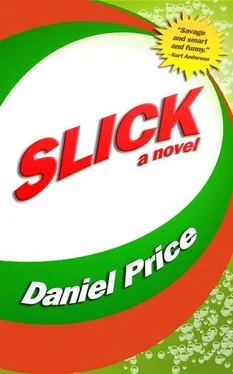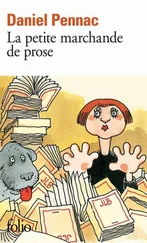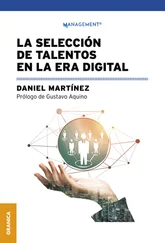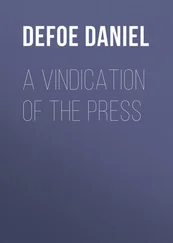Shit. I knew there’d be a downside to chewing out the Judge, aside from his lifelong enmity. Shit, shit, shit. That was not a constructive rumor. And worse, it was the kind that denials only strengthened. I’d have to say something clever to counter the buzz. Whatever it was, I’d save it for the meeting.
“I was being a pain in the ass,” Simba admitted, three floors up. “I was sick of that hotel. Sick of Maxina telling me what to do. And I was definitely sick of Jeremy acting like he was the only one being put out.”
“But then?”
She bounced a glare through the mirrored doors. “Let’s just say I got a wake-up call this morning.”
“How’s he holding up?”
“How do you think he’s holding up?”
“It’s just medicine,” I assured her. “It may taste like crap but it’s going to make everything better again.”
“So you say.”
“Just stand by your husband. You can’t go wrong.”
The elevator stopped at the top floor. After sniffing for reporters, Simba’s bodyguard led us down the hall to our meeting place. A pair of hotel security guards blocked the entrance. They checked our IDs against their lists, then opened the double doors to a massive, sun-drenched room.
“For the record,” Simba added, “I don’t think you’re fucking Harmony.”
“Good to hear.”
She put her shades back on. “I’d like to think you have better taste than that.”
We stepped into the light.
________________
In its heyday, L’Escoffier was the swankiest of swank places to dine, a place where you could rub shoulders with the Hollywood elite over a rich crème brûlée. Eventually Merv Griffin’s people shut the restaurant down and left a chamber in its memory. The place could comfortably seat three hundred people, but there were only twelve of us here. We formed a tiny cluster in the center of the room. None of us looked very comfortable.
“See, to me this personifies Los Angeles,” Maxina joked to her squinting guests. “Too much sun and too much space.”
And yet the loop was looking awfully crowded as of late. Lord only knew how many folks were in on the gag now. The white people at the table were all strangers to me. Four of them were from the RIAA. Two were from Interscope. The final two were from Universal, Interscope’s corporate parent. They weren’t mere envoys. They were all high priests of the music industry.
The Judge sat with the Interscope reps. He threw me a cordial nod. I assumed it meant détente, but it was hard to tell. The sun gleamed so strongly off his bald head, I could barely see him.
For the first time this week, Maxina wasn’t dressed like she was going to Denny’s. Decked out in a stylish gray power suit, she walked around the table introducing everybody. I didn’t bother remembering their names. I hoped to God they’d extend me the same courtesy. This was stupid. It was unnecessary. It was dangerous. Nothing good ever came out of a committee, especially one filled with such nervous and powerful people.
At 10a.m. Maxina sat down and began the meeting.
“All right. Let’s talk about Harmony Prince.”
It wasn’t long before the shouting began.
________________
“They have every reason to be scared,” the Judge explained, as he cut into a veal medallion.
We dined at Trader Vic’s, an aggressively chic eatery next to the hotel. Our tête-à-tête lunch was his idea, but I gladly accepted. The Judge was the one paying my invoice. That made him my client more than Maxina, Harmony, even Hunta. But for me this wasn’t just about customer service. I needed a new friend on the inside, especially since I’d left the Beverly Hilton with a brand new enemy.
“You know how we got the Parental Advisory sticker in the first place, right?”
“Yeah,” I replied. “Tipper Gore had a thing against Prince.”
“She got the ball rolling, but it was her husband who did the real damage. See back in ‘85, when they were having those rock-and-roll obscenity hearings, the music labels didn’t give a shit. Controversy only led to higher sales. What did hurt was the increasing number of kids who recorded songs off the radio instead of buying the albums in stores. So at the time there just happened to be a bill on the Senate floor that would tax all blank audiotapes and give the revenue back to the record industry. We’re talking a handout worth hundreds of millions of dollars. Who fostered that bill? Al Gore. Who sat on the panel at the obscenity hearings? Al Gore.”
“So the labels took the sticker.”
“Right. The RIAA gave in. Not for principle. For profit. And what really sucks, Scott, is that we’re in the same jam again.”
“How so?”
“Think about it.”
I did. “Napster.”
“Napster’s dying, but the problem’s still there. The labels despise the Internet. It terrifies them. What they want more than anything is for Congress to make life hard for all the song-swappers and webcasters. What Congress wants, as always, is to suck up to their soccer-mom constituents. And what do they want?”
“To protect their kids from the evils of rap.”
“As long as it keeps making the goddamn headlines,” said the Judge. “You saw those guys at the meeting. They’re pissing their pants. Once the heat turns up, the first thing they’ll do is turn on Mean World. They’ll cut us out like a tumor. I don’t know how familiar you are with the music business but without one of the Big Five behind me, I won’t get any albums into stores. I won’t get any pay-for-play with the radio stations. Without Interscope, Universal, Vivendi, I might as well board up the windows. Can you see now why I’m stressed?”
He threw his napkin down, then finished his second beer. The Judge had skimped down on the bling-bling today. That was fortunate. In that sunny room, he would have blinged us blind.
“You sure you don’t want a drink, Scott?”
“You know, maybe I will have one.”
The bar was only twenty feet away. The Judge and I both had a nice clear view of the hanging television, currently on CNN (your source for nonstop Hunta speculation). Once again, they showed that lightning fast clip from “Chocolate Ho-Ho,” in which a skin-baring Harmony pressed and shimmied against a shirtless Hunta. She was completely indistinguishable from the woman on Hunta’s other side. For clarity’s sake, the network had dimmed the picture, and then highlighted her head with a light bubble. It made her look angelic, tragic.
The Judge scoffed at the TV. “That song is crap. Half the album is crap. It’s not Jeremy’s fault. It’s mine. His material was all so heavy at first, full of street angst and family drama. So I made him balance it out with some fun tracks. ‘Sex it up,’ I said. ‘Once you carve a name for yourself, then you can do the soulful-artist thing. But in the meantime, you’ve got to think about the market.’”
He shook his empty beer glass at the waitress. “I’m just a businessman, Scott. I never claimed to be smart.”
“You couldn’t have known.”
“Well, I was certainly worried about ‘Bitch Fiend,’” he admitted. “But only because I thought they wouldn’t play it on the radio. I spent a lot of money getting those sample rights. You know how goddamn expensive the Rolling Stones are?”
“He samples the Rolling Stones?”
The Judge eyed me like I just fell from space. “Yeah. ‘Shattered.’ You never heard the song?”
“I’ve heard ‘Shattered.’”
“But you’ve never actually heard ‘Bitch Fiend.’”
I smiled. “I’ve heard of it.”
“Damn, Scott. Do yourself a favor. Do me a favor. Buy the CD.”
Actually, now I planned to download the song off the Internet, but that wasn’t the thing to tell him.
Читать дальше











